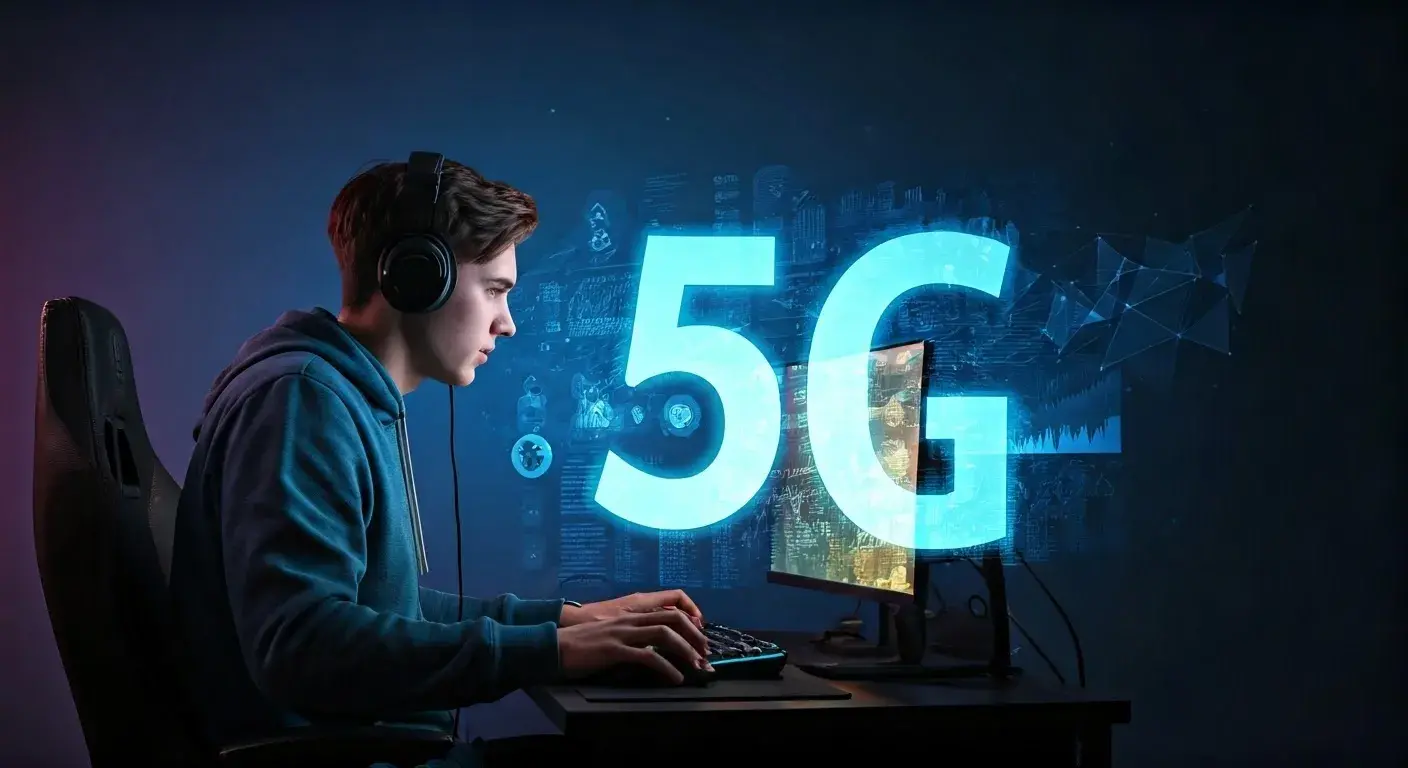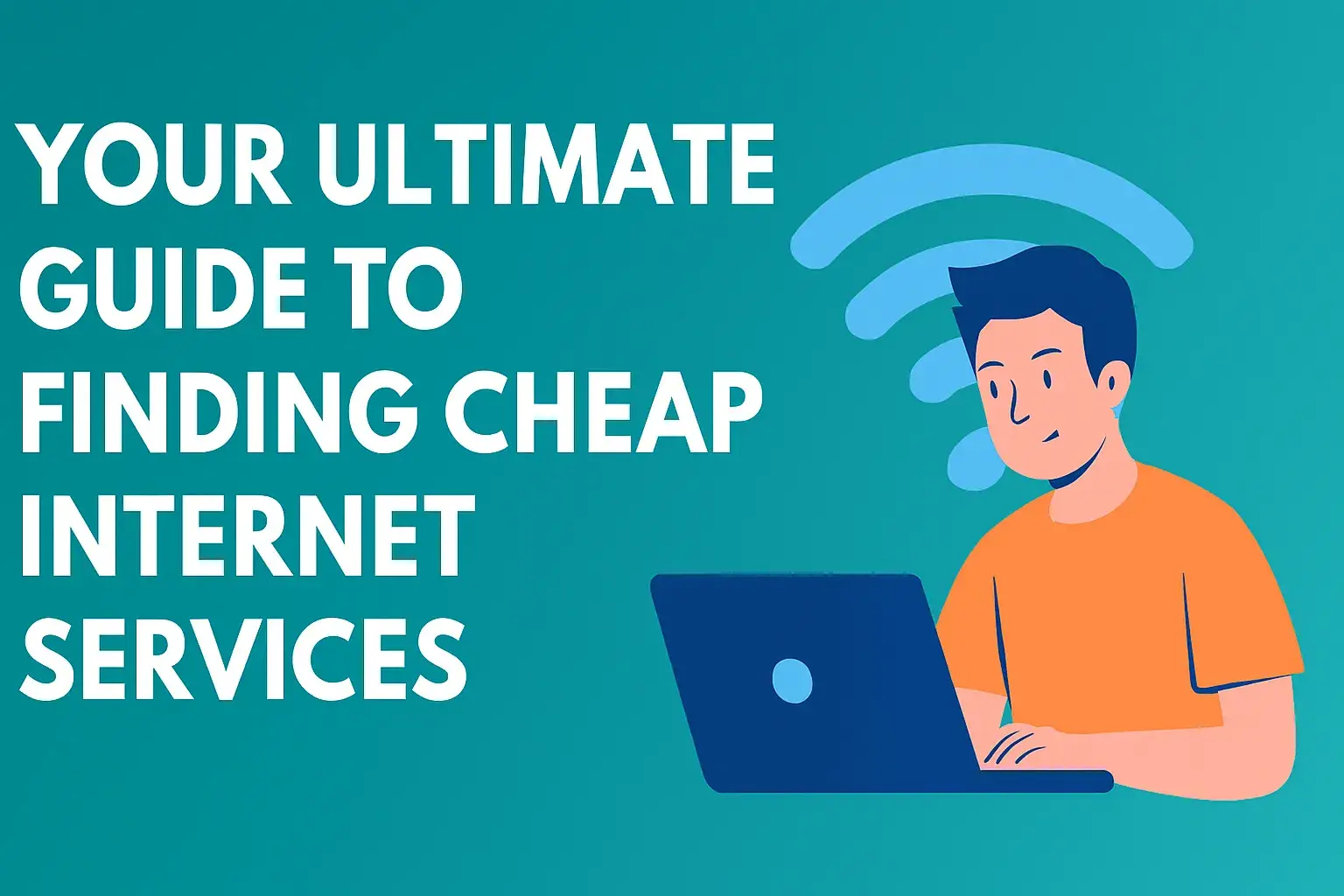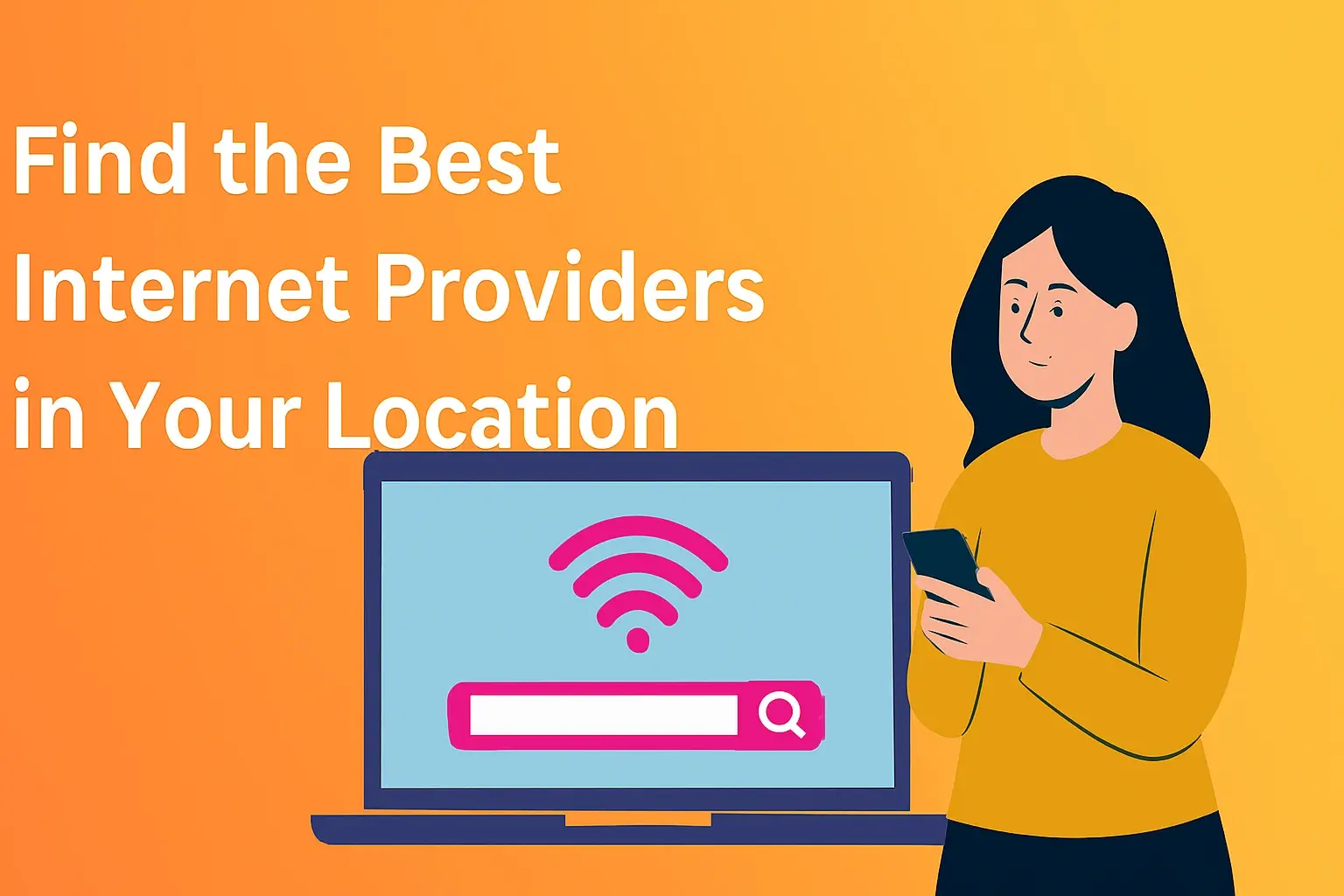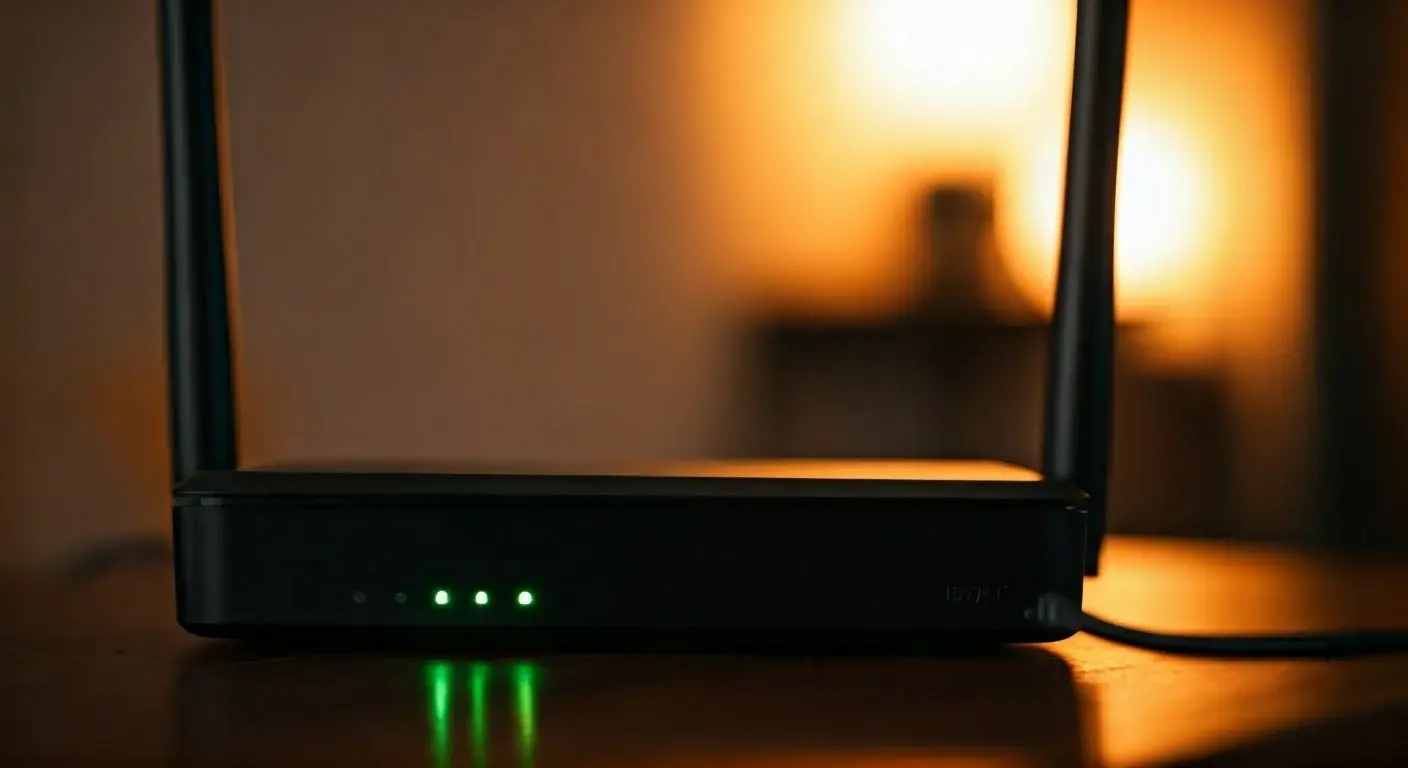Maximize Your Gaming Experience with 5G Internet

In 2025, 5G internet is no longer a futuristic dream but a reality transforming online gaming. Discover how its unparalleled speeds, ultra-low latency, and enhanced reliability will revolutionize your gaming sessions, offering a competitive edge and immersive gameplay like never before. For years, gamers have been tethered to the limitations of their internet connections. Lag spikes, slow downloads, and inconsistent performance have been frustrating roadblocks to achieving peak gaming potential. But the landscape is shifting dramatically. In 2025, 5G internet is emerging as the definitive technology to shatter these barriers and usher in an unprecedented era of online gaming. Imagine downloading massive game files in minutes, not hours. Picture reacting instantly to in-game events with near-zero delay. Envision seamless, high-fidelity cloud gaming experiences that rival dedicated consoles. This isn't science fiction; it's the tangible promise of 5G for gamers. This comprehensive guide will delve deep into how 5G internet can maximize your gaming experience, explore its core advantages, compare it to existing technologies, and equip you with the knowledge to embrace this revolution. We'll cover everything from the fundamental technological leaps 5G offers to practical advice on how to leverage it for your competitive advantage. Get ready to elevate your gameplay, reduce frustration, and truly immerse yourself in the worlds you love to play in. While speed is often the headline feature, 5G's impact on gaming extends far beyond raw download and upload rates. It's a holistic improvement designed to address the critical needs of modern online gaming. Competitors often focus solely on speed, but 5G's true power lies in its synergy of multiple advancements. Latency, often referred to as "ping," is the bane of competitive online gaming. It's the time it takes for your actions to register on the game server and for the server's response to reach you. High latency means delayed reactions, missed shots, and a frustratingly disconnected feeling. 5G technology dramatically reduces latency, often bringing it down to single-digit milliseconds (ms). For comparison, 4G LTE can range from 50-100ms, and even fiber optic can fluctuate. This near-instantaneous response time means: Modern games are massive. Downloading a new AAA title can easily exceed 100GB. With 5G, these downloads become significantly faster. While exact speeds vary based on network congestion and your specific plan, 5G offers theoretical peak speeds of up to 10 Gbps, with real-world speeds often exceeding 1 Gbps. This means: 5G networks are designed for higher density and greater capacity, meaning they can handle more devices and more data traffic simultaneously without performance degradation. This is particularly important in areas with many users or during peak gaming hours. Key reliability benefits include: To truly understand how 5G maximizes your gaming experience, let's break down the technical advantages and translate them into tangible gaming benefits. Competitors might mention these, but we'll provide concrete examples and comparisons. In competitive gaming, the difference between winning and losing can come down to a few milliseconds. 5G's ultra-low latency is a direct response to this need. Example: In a tactical shooter like Valorant or Counter-Strike 2, a player with 10ms ping might see an opponent and react to shoot fractions of a second before a player with 50ms ping. This seemingly small difference can be the deciding factor in a firefight. 5G aims to bring ping levels into the 5-20ms range for many users, a significant leap from the 30-100ms often seen with cable or even fiber in less optimal conditions. This low latency also enhances cloud gaming services like NVIDIA GeForce NOW or Xbox Cloud Gaming, making them feel as responsive as playing on local hardware. Beyond just downloading games, 5G's speed impacts other aspects of your gaming life. 5G's architecture is designed to be more robust and handle traffic more efficiently than previous generations. Think about it: On a Friday night, when everyone is online, your cable or DSL connection might slow down significantly. 5G's increased capacity means it's less susceptible to these performance dips, providing a more stable and consistent experience, even during peak hours. This is crucial for maintaining your rank and enjoying uninterrupted gaming sessions. To truly appreciate 5G's potential, let's compare it directly to the internet technologies gamers commonly use today. Competitors often present vague comparisons; here, we offer concrete data and scenarios. Fiber optic internet is currently the gold standard for many, offering high speeds and low latency. However, 5G is rapidly closing the gap and, in some aspects, can offer superior flexibility. Key Takeaway: While fiber often offers more consistent symmetrical speeds and broader availability in established areas, 5G provides unparalleled flexibility and mobility. For gamers who need a portable gaming setup or live in areas where fiber is not yet available, 5G is a compelling alternative that can deliver comparable, if not superior, gaming performance. Cable internet has been a common choice for gamers, but it often struggles with latency and shared bandwidth issues. Key Takeaway: 5G offers a significant advantage in latency and reliability over cable internet, especially in congested areas. While cable might offer decent download speeds, the consistent low ping and stability of 5G are far more beneficial for competitive online gaming. DSL is generally the slowest and highest-latency option, making it unsuitable for serious online gaming. Key Takeaway: There is no contest. 5G is vastly superior to DSL for any form of online gaming. The speed and latency differences are so profound that DSL is effectively unusable for a modern, competitive gaming experience. Ready to experience the future of gaming? Transitioning to 5G internet is more accessible than you might think. Here’s a step-by-step guide to get you started. The first crucial step is to determine if 5G coverage is available where you live or play. Major mobile carriers (like Verizon, T-Mobile, AT&T in the US, and their equivalents globally) and dedicated 5G home internet providers offer coverage maps on their websites. Action: Visit your preferred carrier's website and use their interactive map to check for 5G availability. Pay attention to whether it's "5G Ultra Wideband" or "5G Nationwide," as the former typically offers the best performance. There are several ways to access 5G for gaming: Once you've confirmed availability and chosen a solution, it's time to pick a plan and the necessary hardware. Key considerations for plans: Hardware: Even with the best 5G connection, a few tweaks can further enhance your experience. Additional optimizations: After setup, it's essential to test your connection. Action: Use online speed test tools (like Speedtest.net) to check your download/upload speeds and, most importantly, your ping. Play your favorite games and monitor for any issues. If you experience inconsistencies, contact your provider or revisit your setup optimizations. The impact of 5G on gaming is still unfolding, with exciting developments on the horizon that will further enhance player experiences. Competitors might focus on current benefits, but we're looking ahead. 5G's low latency and high bandwidth are the perfect catalysts for cloud gaming to go mainstream. Services like Xbox Cloud Gaming, GeForce NOW, and PlayStation Plus Premium will become even more responsive and accessible, allowing players to enjoy AAA titles on virtually any device without needing powerful local hardware. What this means for you: Play the latest games on your phone, tablet, or even a smart TV with the same quality and responsiveness as a high-end PC or console. Immersive AR and VR experiences demand massive bandwidth and near-zero latency to feel realistic and prevent motion sickness. 5G is the enabling technology for truly untethered, high-fidelity AR/VR gaming. Imagine: Playing a full-scale AR game that overlays digital characters onto your real-world environment, with seamless interaction and no lag. Or experiencing VR worlds with photorealistic graphics and instant responses to your movements. As 5G networks become more robust, they will support even larger and more complex MMO worlds. The ability to connect thousands, if not millions, of players simultaneously with low latency will unlock new possibilities for game design and player interaction. 5G works in tandem with edge computing, bringing processing power closer to the user. This can lead to faster AI decision-making in games, more dynamic game worlds, and even real-time game adjustments based on player behavior, all processed with minimal delay. The bottom line: 5G isn't just an upgrade; it's a fundamental shift that will redefine what's possible in video games, making them more immersive, responsive, and accessible than ever before. In conclusion, 2025 marks a pivotal year where 5G internet is no longer just an option but a significant upgrade for serious gamers. The revolutionary combination of ultra-low latency, blazing-fast speeds, and enhanced reliability fundamentally transforms the online gaming experience. Say goodbye to frustrating lag, lengthy download times, and inconsistent performance. With 5G, you gain a tangible competitive edge, unlock smoother gameplay, and can finally experience cloud gaming and immersive AR/VR titles as they were meant to be. We've explored how 5G surpasses older technologies like cable and DSL, offering performance that rivals even fiber optic in many aspects, with the added benefit of mobility and potentially easier setup. By following the steps outlined to check availability, choose the right solution, and optimize your setup, you can seamlessly transition to a superior gaming environment. The future of gaming is here, powered by 5G, promising even more incredible innovations like widespread cloud gaming and advanced AR/VR experiences. Don't get left behind; maximize your gaming experience today by embracing the power of 5G internet.Maximize Your Gaming Experience with 5G Internet in 2025: The Ultimate Guide
The Dawn of a New Gaming Era: Why 5G is Your Next Essential Upgrade
Why 5G is a Game-Changer for Gamers: Beyond Just Speed
Unlocking True Responsiveness: The Latency Revolution
Download and Upload at Blazing Speeds
Unwavering Reliability and Capacity
Unpacking the Core Benefits: Speed, Latency, and Reliability in Detail
The Latency Advantage: Milliseconds Matter
Speed: Downloading, Uploading, and Streaming
Reliability and Network Congestion: The Unsung Heroes
5G vs. Other Internet Technologies for Gaming: A Clear Comparison
5G vs. Fiber Optic
Feature
5G Internet (Home/Mobile)
Fiber Optic Internet
Peak Download Speed (Theoretical)
Up to 10 Gbps
Up to 10 Gbps (and sometimes higher symmetrical)
Real-World Download Speed (Typical)
200 Mbps - 1 Gbps+
500 Mbps - 2 Gbps+
Latency (Ping)
As low as 5-10 ms (ideal conditions)
As low as 5-10 ms (ideal conditions)
Upload Speed
Highly variable, can be close to download speeds
Often symmetrical (same as download)
Availability
Rapidly expanding, especially in urban/suburban areas; mobile options
Limited by physical infrastructure, requires direct fiber line
Installation
Often plug-and-play (modem/router); mobile hotspot
Requires professional installation, trenching may be involved
Mobility
High (mobile hotspot, dedicated 5G home internet)
None (fixed line)
Cost
Varies by plan and provider, can be competitive
Can be premium, especially for highest speeds
5G vs. Cable Internet
Feature
5G Internet
Cable Internet
Peak Download Speed (Theoretical)
Up to 10 Gbps
Up to 1-2 Gbps (DOCSIS 3.1/4.0)
Real-World Download Speed (Typical)
200 Mbps - 1 Gbps+
100 Mbps - 500 Mbps
Latency (Ping)
As low as 5-10 ms
15-50 ms (can spike significantly)
Upload Speed
Variable, potentially high
Significantly lower than download (e.g., 10-35 Mbps)
Reliability (Congestion)
High capacity, less prone to local congestion
Shared bandwidth, prone to slowdowns during peak hours
Installation
Easy, plug-and-play or mobile
Requires professional installation of coaxial cable
5G vs. DSL Internet
Feature
5G Internet
DSL Internet
Peak Download Speed (Theoretical)
Up to 10 Gbps
Up to 100 Mbps (rarely achieved)
Real-World Download Speed (Typical)
200 Mbps - 1 Gbps+
10 Mbps - 40 Mbps
Latency (Ping)
As low as 5-10 ms
50-150 ms (often higher)
Upload Speed
Variable, potentially high
Extremely low (e.g., 1-5 Mbps)
Reliability
High
Can be affected by distance from exchange and line quality
Getting Started: Your Path to 5G Gaming Supremacy
Step 1: Check 5G Availability in Your Area
Step 2: Choose Your 5G Internet Solution
Step 3: Select a Plan and Device
Step 4: Optimize Your Setup for Gaming
Step 5: Test and Monitor Your Performance
The Future is Now: Emerging Trends in 5G Gaming
Ubiquitous Cloud Gaming
Augmented Reality (AR) and Virtual Reality (VR) Gaming
Massively Multiplayer Online (MMO) Experiences
Edge Computing and AI Integration
Embrace the Future: Your Ultimate Gaming Advantage Awaits
Faq
Do I need a new gaming console or PC for 5G internet?
No, you do not need new gaming hardware. 5G internet is a network connection. Your existing PC, console, or mobile device will connect to the 5G network (either via Wi-Fi or Ethernet from a 5G router/hotspot). The benefits of 5G are realized through the network itself, not by upgrading your gaming rig.
Is 5G internet available everywhere?
5G coverage is rapidly expanding, but it is not yet universal. Availability varies significantly by region and even within cities. "5G Nationwide" offers broader coverage but with speeds closer to 4G LTE. "5G Ultra Wideband" or similar premium tiers offer the best performance but have more limited coverage. Always check specific coverage maps for your exact location.
How does 5G home internet compare to traditional cable or fiber in terms of stability?
In terms of stability, 5G home internet aims to rival cable and fiber. While fiber is generally considered the most stable due to its dedicated physical line, 5G's advanced network architecture and capacity make it far more stable than cable, especially during peak hours. Wireless connections can sometimes be subject to environmental interference, but 5G technology is designed to mitigate this effectively.
Will 5G gaming consume more data than I expect?
Yes, 5G's higher speeds can encourage more data-intensive activities. Downloading large games and updates will be faster, but they still consume significant data. Streaming high-definition content and playing graphically intensive cloud games also use more data. It's crucial to choose a 5G plan with ample data or unlimited data to avoid overage charges.
Can I use 5G for local multiplayer gaming (LAN parties)?
While 5G is primarily for online connectivity, you can use a 5G home internet connection or a 5G mobile hotspot as the primary internet source for devices participating in a local network. If your games support LAN play over the internet (e.g., through Steam's Remote Play Together or similar features), 5G can facilitate this. For true offline LAN play, you'd still connect devices directly via Ethernet or local Wi-Fi, but 5G could be the gateway to the internet for online-enabled LAN games.
What are the risks of using a mobile hotspot for serious gaming?
The primary risks include data caps, potential throttling after exceeding limits, and variable signal strength depending on your location and network congestion. While 5G mobile hotspots offer great convenience and speed, they might not provide the same consistent, dedicated performance as a 5G home internet solution for extended, high-stakes gaming sessions. Always check your mobile plan's terms regarding hotspot usage and data limits.





